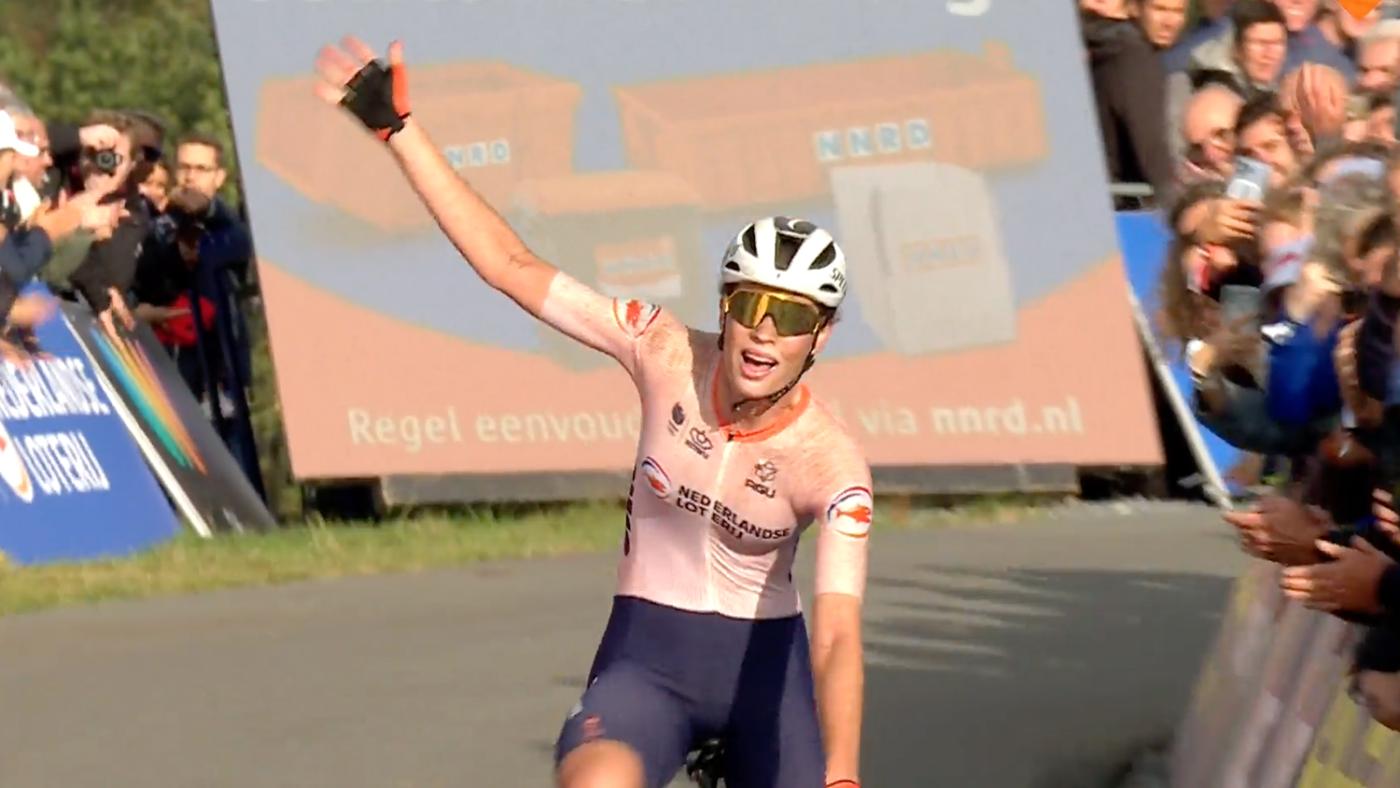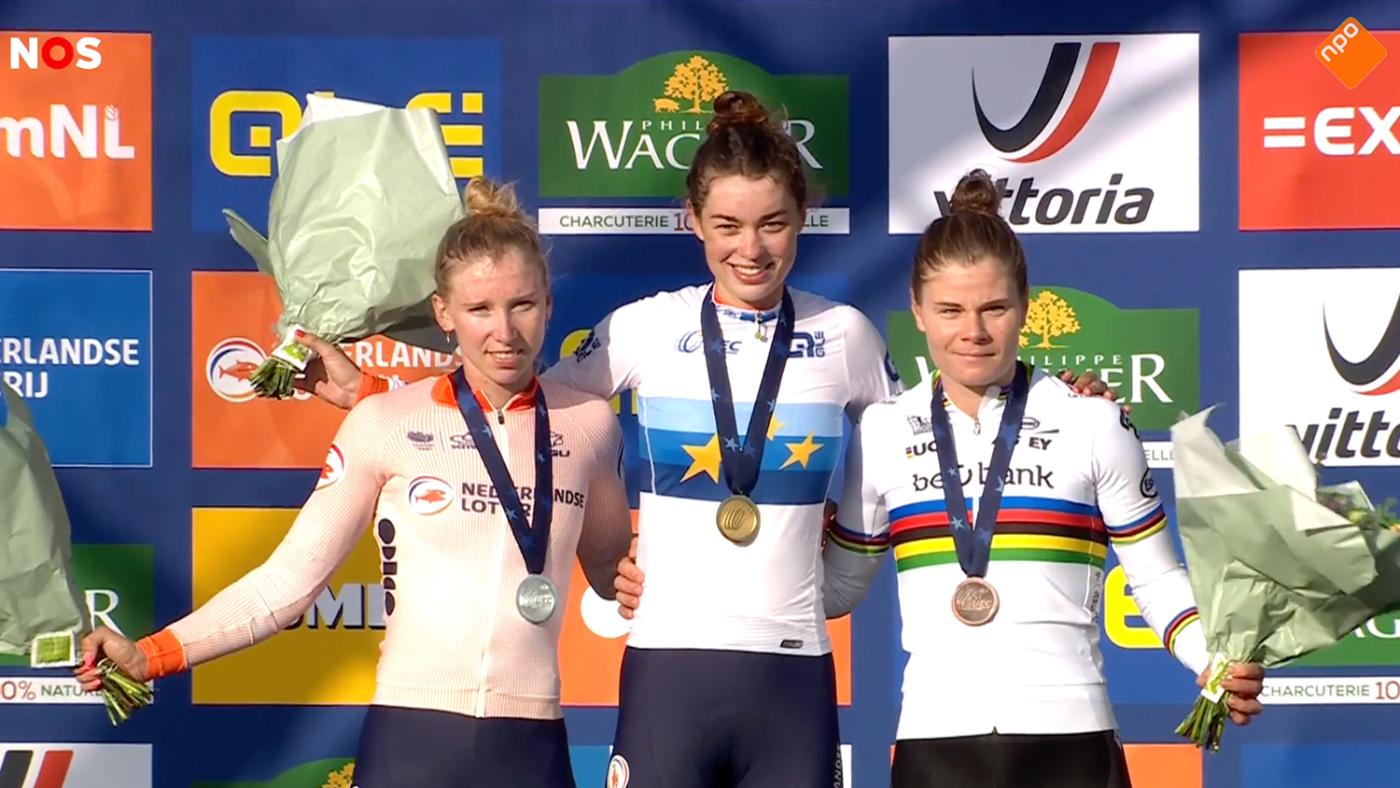Cycling sensation to continue UU studies after winning European title
Suddenly, everybody knows Mischa Bredewold

“Where are you from again? Oh, right, from the university. I’m sorry, I’m just getting so many media requests.” Mischa Bredewold (23) is a little overwhelmed after her unexpected win in Drenthe. “Suddenly, everyone wants to know everything about me,” she tells DUB on the phone, talking from her parents’ home in Hoogland, in the province of Utrecht. “I wasn’t well known among the general public and, apparently, everyone really likes it when the underdog wins. I'm in every newspaper: De Volkskrant, NRC... It’s truly exploded. Simply bizarre.”
It really came as a surprise when Bredewold, a domestique, won the title in Drenthe instead of the leading women she was supposed to support. It was unclear whether her deciding spurt in the last ten kilometres was in accordance with the agreements of the Dutch national team, which made the story even more attractive to the media. Defending champion Lorena Wiebes was particularly down. She’s usually Bredewold’s team member in the international top team SD Worx, and won second place in the European championship. “We’re good now,” the Biomedical Sciences student assures.
Getting through the texts
The European Championship was also the last match of the season. Her first days without any cycling obligations consisted mainly of replying to social media posts. Just the congratulatory texts alone took her a few hours. “I really want to thank everyone personally. There are so many sweet messages, including some from the university. For example, I got messages from my old mentor groups and also from coordinators of courses I’ve taken in the past.”
High study pace
Bredewold had a turbulent development as a cyclist last year, especially after switching to SD Worx. Before the European Championship, she already had a number of remarkable wins to her name. A beautiful and perhaps lucrative future in the increasingly popular sport seems to be calling her name. Not a lot of time for other things, you’d assume.
She doesn’t really have a student life. She also barely has time to attend her classes in Utrecht. Still, quitting her studies in Biomedical Sciences is out of the question. She wants to keep on studying as she's always done these past few years, usually taking only one course per term. This means that she could graduate with a Bachelor's degree by the end of next year, six years after she got started.
“But it is getting harder to combine the two,” she acknowledges. “Keeping up with the pace of my courses is getting harder and harder.” It doesn’t help that she hasn't been in touch with other students much, so she has to do a lot by herself.
Studying is fun
“If I hadn’t already been this far ahead in my studies, I’m not sure if I would keep going. But I also really like studying. I like to learn things and I want to keep developing myself. I’m convinced that my studies also improve me as a person.” She struggles to exemplify how but she indicates that she finds her minor courses in Philosophy and Ethics “super interesting”.
She is sure that she wants to keep studying, even if her graduation had to wait until the end of her cycling career. “But I don’t think you’ll find me in a lab by then. When it comes to that, I do think I’ve changed. I'm mostly interested in bioethics.”

Perseverance
Those who’ve read last week’s newspaper articles will easily be convinced that she’ll be fine with her studies, too. The student is being described everywhere as a "fighter" who pushes through any adversity. In 2018 – the year she was going to start studying – she was hit by a truck while training. One of the consequences of the accident was brain damage, which paralysed the left side of her body. A lengthy rehabilitation process followed in places like the rehabilitation hospital De Hoogstraat, in Utrecht, and she recovered. “When I went to university a year later, that was more or less meant as a form of therapy. My main goal was to improve my cognitive recovery. Thankfully, everything was fine in the end, and it doesn’t bother me at all now.”
Setting goals
Today, her main goal is to win more races, especially those with a lot of hills such as the Amstel Gold Race. She says those types of races work best for her. And who knows, maybe she might develop as a climber, surprising people in the bigger races. “There are so many goals to achieve.”
She hopes her increased fame will support her through the next two years. “I was already pretty satisfied with the help I got from course coordinators when I asked for exceptions but, this past year, I've noticed that it helps to have your name featured in the newspaper every now and then. Everyone is happy to give you what they can, everyone becomes a little more flexible. That’s very nice.”